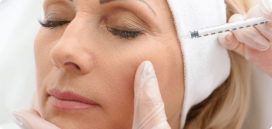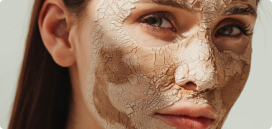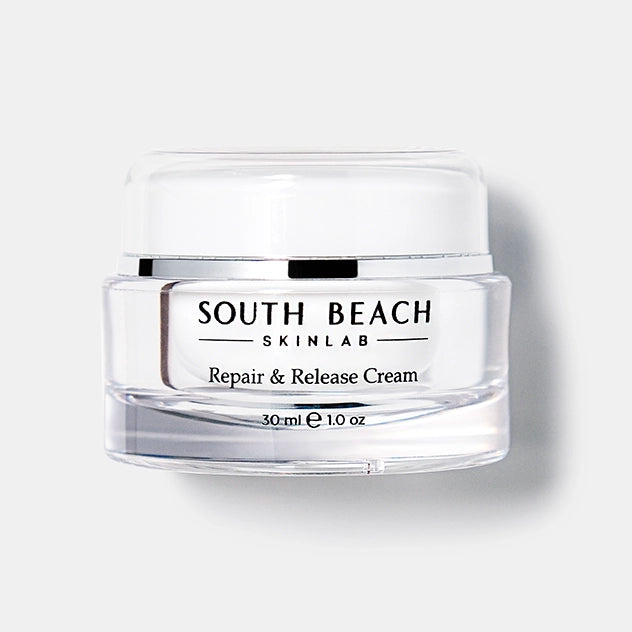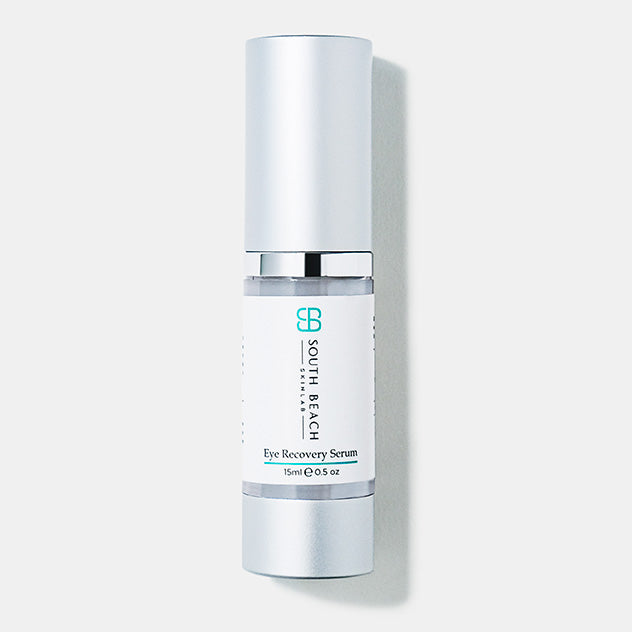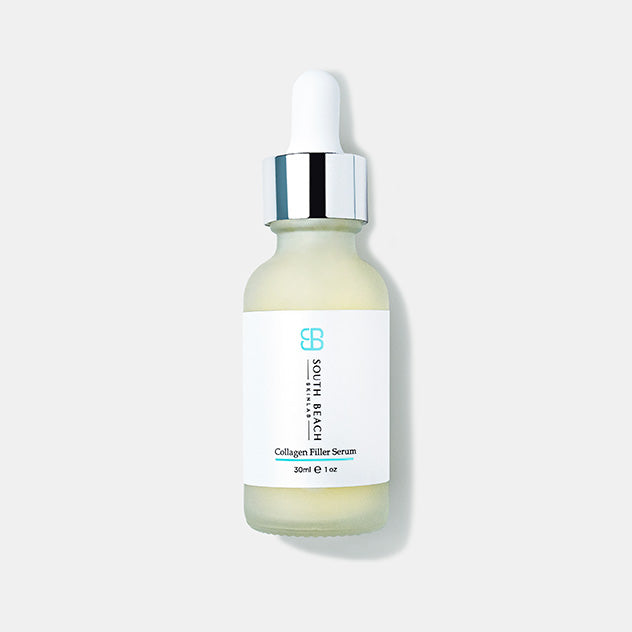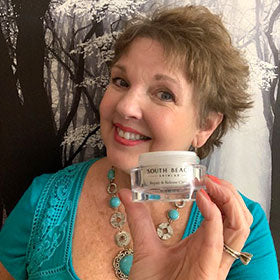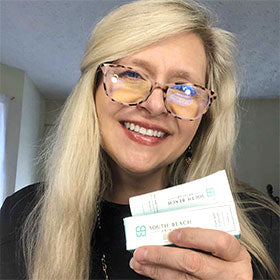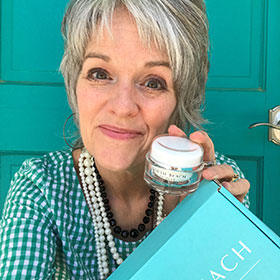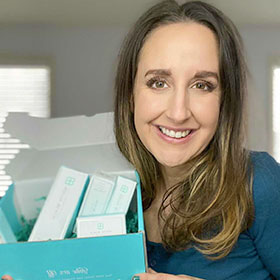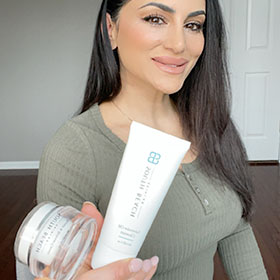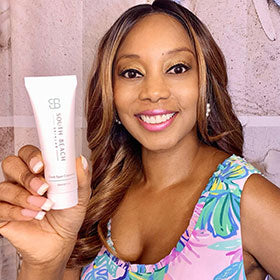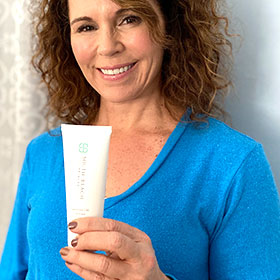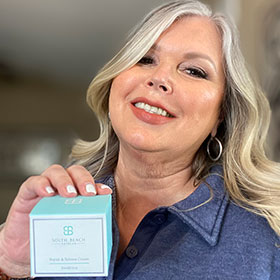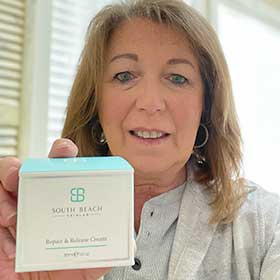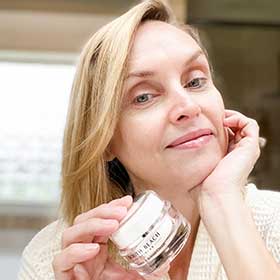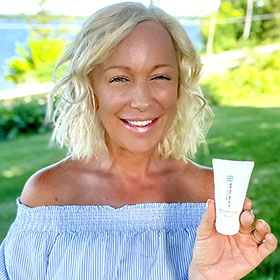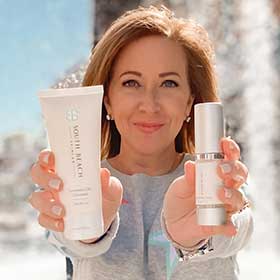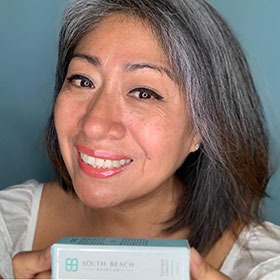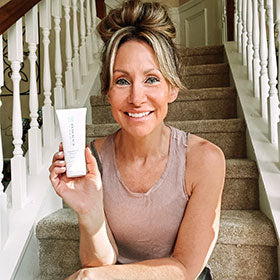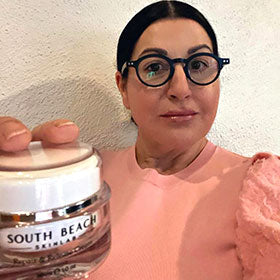If you’re into skincare, you’re probably often bombarded with a ton of terms, some that might be more familiar to you than others. While terms like "moisturizer" and "anti-aging" are easy-peasy, there are several lesser-known skincare terms that can transform your understanding of skin care and help you achieve your skincare goals - plus look like a total skincare guru in front of your friends!
We’ve rounded up 3 uncommon skincare terms you may have heard floating around, and explained them so that you can be the person your friend group comes to for skincare advice! Class is in session…
Humectant
A humectant is a type of skincare ingredient that has the ability to attract and retain moisture from the environment, which can help hydrate the skin. Some of the most popular humectants are sodium hyaluronate, glycerin, and aloe vera. They work by drawing water molecules into the skin, resulting in a plumper, more hydrated complexion.
From an anti-aging perspective, humectants play a huge role in maintaining the skin's hydration levels, which is essential for a youthful, supple complexion. By keeping the skin hydrated, humectants help to minimize the appearance of fine lines and wrinkles, improve skin elasticity, and promote overall skin health.

Emollient
An emollient is a type of skincare ingredient that helps to soften and smooth the skin's surface by filling in gaps between skin cells. Emollients are often found in moisturizers, creams, and ointments and can include ingredients like oils, butters, and fatty acids. These ingredients create a protective barrier on the skin, preventing moisture loss and enhancing skin texture.
Emollients - like Shea Butter and Cocoa Butter - play a vital role in maintaining the skin's barrier function, which becomes increasingly important as we age. By nourishing and moisturizing the skin, emollients help to prevent dryness, flakiness, and rough texture, all of which can contribute to the appearance of aging. Additionally, emollients help to improve the skin's overall appearance and create a smooth, radiant complexion.

Trans-Epidermal Water Loss (TEWL)
Trans-epidermal water loss (TEWL) is just a fancy term for evaporation - but specifically, evaporation of the water and moisture from our skin. As we age, the skin's natural barrier becomes weaker, leading to an increase in TEWL. This can result in dryness, dehydration, and accelerated aging, as the skin loses its ability to retain moisture effectively.
Preventing TEWL is essential for maintaining healthy, youthful-looking skin. Incorporating ingredients like emollients and humectants can help strengthen the skin's barrier function and reduce TEWL.

Understanding these lesser-known skincare terms can empower you to make informed decisions about your skincare routine and address specific skin concerns more effectively. So go ahead, impress your friends with your newfound skincare knowledge, and take your skincare game to the next level!

